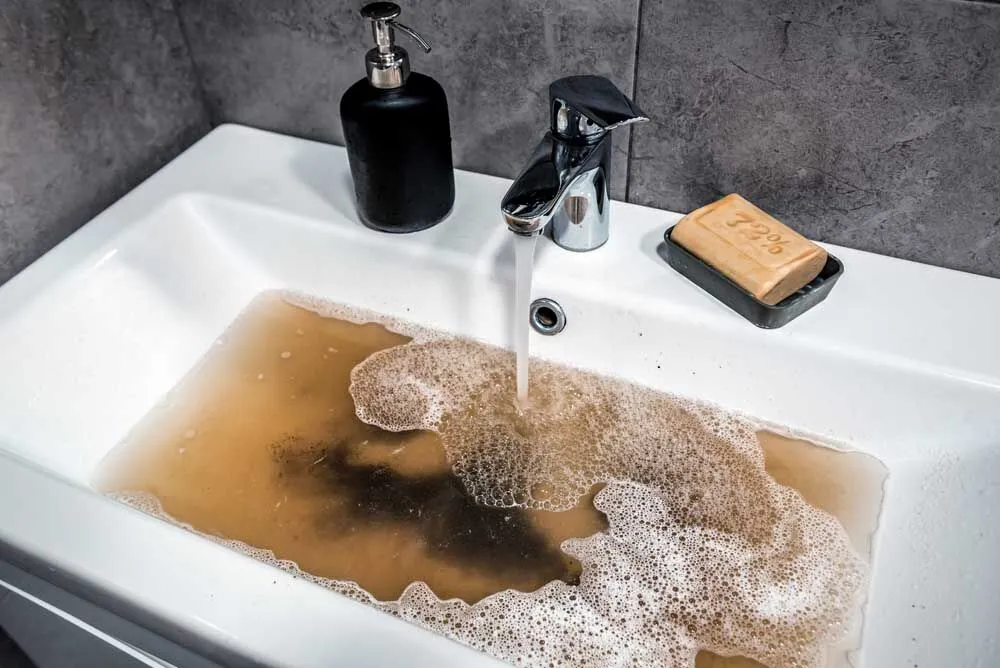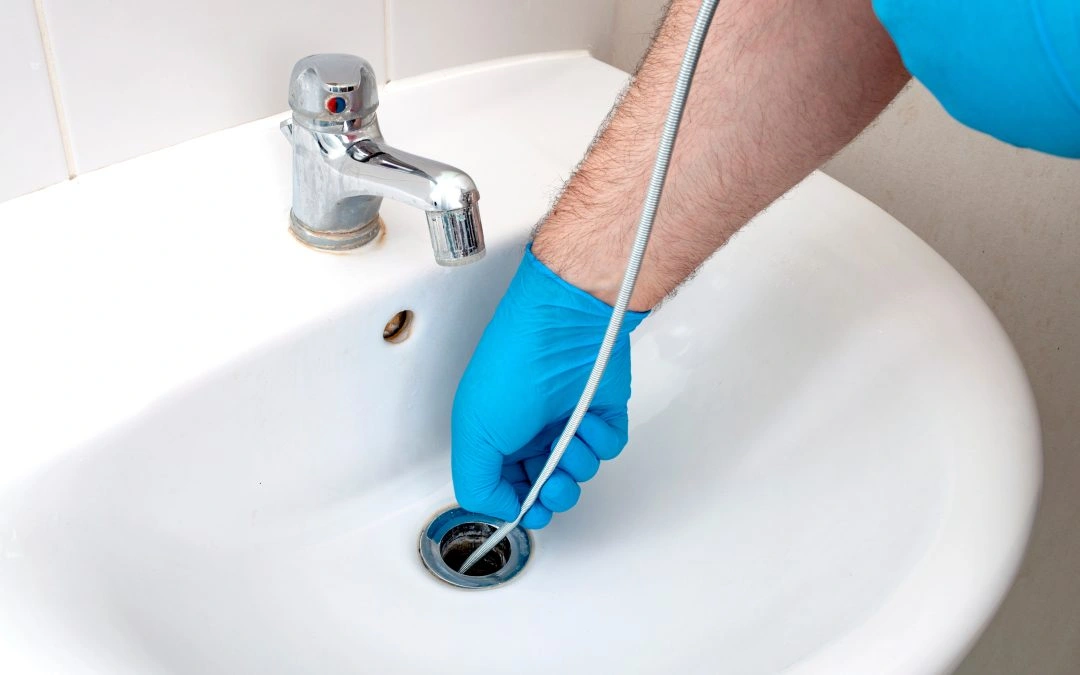Why Recurring Drain Clogs Are a Sign of a Bigger Problem
Let’s face it: dealing with a clogged drain is one of those household headaches no one really wants to handle. It starts with a slow drain, maybe some gurgling sounds, and you’re ankle-deep in water that’s not going anywhere before you know it. Annoying, right? At All Star Plumbing and Restoration, we understand just how frustrating these issues can be. With years of expertise in tackling everything from stubborn clogs to complex plumbing problems, we’re here to help you get to the root of the issue and keep your pipes flowing freely.
But what happens when this isn’t just a one-time thing? What if you find yourself reaching for that plunger or drain snake repeatedly? Recurring drainage issues are more than just an inconvenience; they’re a red flag waving at you, telling you something more significant might be going on beneath the surface.
The Sneaky Culprits Behind Persistent Drainage Problems
So, why do these blockages keep coming back? The truth is, it’s not always about what you’re washing down the sink or flushing down the toilet. Sure, grease buildup, hair clogs, and soap scum are common culprits. But if these problems persist despite your best efforts, it’s time to dig a little deeper—literally.
Pipe Damage: The Silent Saboteur
One primary reason for recurrent blockages is damaged pipes. Over time, your plumbing system can take quite a beating. Pipes can crack, corrode, or collapse, creating the perfect breeding ground for blockages. Tree roots, for example, are notorious for sneaking their way into small cracks in underground pipes, turning them into clogged nightmares. If you’ve noticed recurring blockages after heavy rains, that’s a telltale sign that damaged pipes might be to blame.
Severe Blockages: The Hidden Villains
Sometimes, the problem isn’t just the usual suspects like hair or grease; it’s a more severe blockage lurking deep within your plumbing. Over time, debris can accumulate and harden, forming stubborn clogs that no amount of DIY effort can clear. Think of it like cholesterol building up in your arteries—eventually, the flow just stops. And trust me, when water stops moving, you’ve got a serious problem.
Incorrect Installation or Aging Systems
Another factor often overlooked is the age of your plumbing system or improper installation. Older homes, for instance, may have outdated materials that aren’t built to handle modern water usage. On the other hand, poorly installed pipes can lead to misalignments or sags, creating pockets where debris can settle and cause ongoing issues.
Why DIY Fixes Aren’t Enough
I get it. When you’re faced with a backed-up sink or a slow shower drain, your first instinct might be to roll up your sleeves and tackle it yourself. And hey, sometimes a quick plunge or a dash of baking soda and vinegar does the trick. But here’s the thing: if these blockages keep returning, those quick fixes are just a band-aid on a much bigger wound.
DIY solutions often address the symptoms, not the root cause. You might clear enough of the blockage to get the water flowing again, but the underlying problem—whether it’s pipe damage, a deep clog, or poor plumbing design—is still there, waiting to strike again. Think of it like mowing over a weed without pulling out the roots. Sure, it looks fine for now, but give it some time, and you’ll be right back where you started.
The Case for Professional Assessment
Here’s the deal: when dealing with recurring drainage problems, it’s time to call in the pros. Professional plumbers have the tools and expertise to get to the heart of the issue. Using advanced technology like video camera inspections, they can pinpoint precisely where and why your plumbing is acting up. This isn’t something you can achieve with a store-bought drain snake.
Once the problem is identified, a professional can recommend the best course of action, whether it’s hydrojetting to clear stubborn blockages, repairing or replacing damaged pipes, or even reconfiguring your plumbing system for better performance. Sure, it might cost a bit more upfront, but in the long run, it saves you from the frustration and expense of dealing with the same problem over and over again.
Preventing Future Drainage Woes
Prevention, as they say, is better than cure. And when it comes to your plumbing, a little maintenance goes a long way. Here are some tips to keep your drains flowing freely:
- Be Mindful of What Goes Down the Drain: Avoid pouring grease, coffee grounds, or food scraps down your kitchen sink. Use drain screens to catch hair and debris in bathroom drains.
- Schedule Regular Maintenance: Just like your car needs a tune-up, so does your plumbing. Regular inspections can catch minor issues before they become big problems.
- Invest in Professional Cleaning: Even if you don’t have an active problem, periodic professional cleaning can keep your pipes in top shape.
- Upgrade Old Systems: If you’ve got an older home, consider upgrading to modern materials like PVC or PEX, which are more durable and resistant to clogging.
Recurring drain clogs are more than just a minor annoyance; they’re often signs of deeper issues that need professional attention. Ignoring the problem or relying on quick fixes can lead to more significant headaches down the line, from costly repairs to potential water damage. So, if you’re tired of dealing with the same clog over and over again, it’s time to take action.
Call in our experts and contact our team today at All Star Plumbing & Restoration for a comprehensive plumbing inspection and professional drain cleaning services. We’re available 24/7 to handle emergencies ensuring your plumbing system runs smoothly for years, tackle the problem at its source, and give yourself the peace of mind that comes with a properly functioning plumbing system.
Frequently Asked Questions (FAQs)
Q: What are the most common signs of a severe blockage?
A: Slow drainage, recurring clogs, foul odors, and gurgling sounds are all red flags that you might have a severe blockage deep in your pipes
Q: Can tree roots really damage pipes?
A: Absolutely. Tree roots are attracted to the moisture in your pipes and can infiltrate through small cracks, causing significant damage over time.
Q: How often should I have my drains professionally cleaned?
A: It depends on your household’s water usage and the age of your plumbing. A good rule of thumb is at least once every 1-2 years.
Q: Are chemical drain cleaners safe for pipes?
A: Not always. Many chemical cleaners are highly corrosive and can damage your pipes over time, especially if used frequently.
Q: What is hydrojetting, and how does it work?
A: Hydrojetting uses high-pressure water to clean out pipes, removing stubborn blockages and buildup. It’s a highly effective method for deep cleaning your plumbing system.





